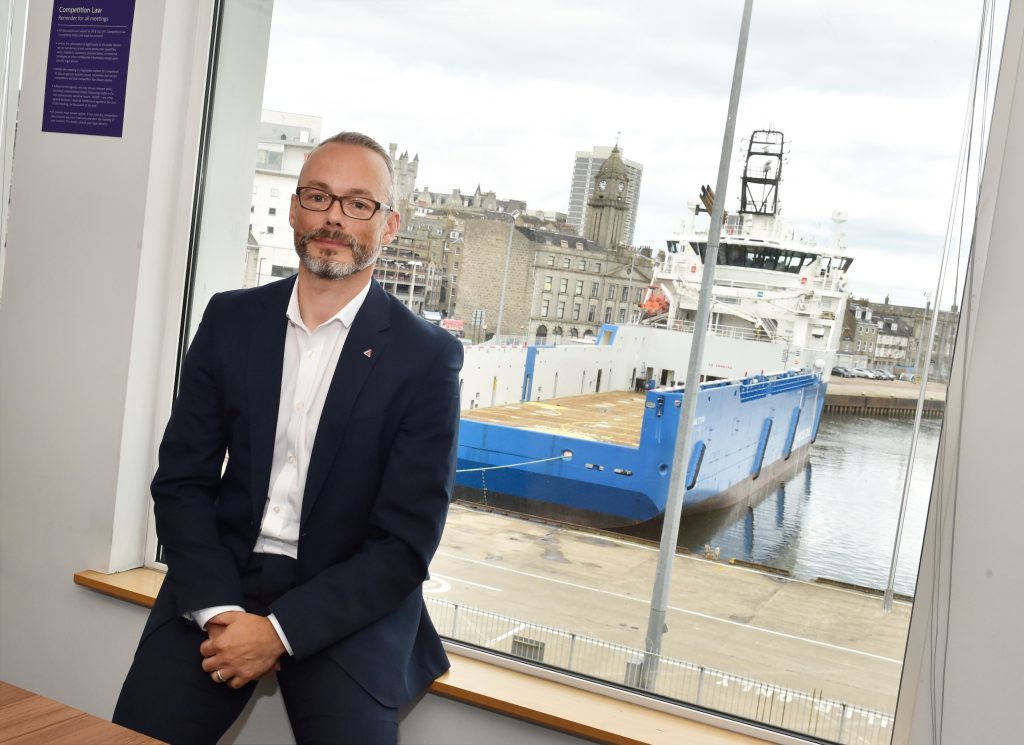
Executive director of the organisation tasked with keeping offshore workers safe, Les Linklater of Step Change speaks to Energy Voice about how essential it is to get people to talk about helicopter safety, even when that conversation is difficult.
It’s a substantial task given the mistrust associated with the Airbus H225 Super Puma due to recent fatal crashes in the North Sea and Norway involving offshore oil workers.
“We all want to go home safe. How do we do it together?” said Linkleater.
Amid all the noise, Linklater’s job is to ensure that everyone’s voice gets heard.
He said: “My job is to advocate fundamentally for the passenger voice. I think it’s part of being tripartite, part of being not of oil and gas, not of union and not of regulator. To get it right, you kind of have to be all of those things. But ultimately the oil and gas company, the unions and the regulator all want to make sure that everyone comes home in one piece.
“We might sometimes communicate that differently. But the ambition is the same. That’s where Step Change comes in, to own that bit in the middle – ensuring that the customer, the workforce voice, is heard in every case.”
Speaking about how important it is to remain neutral, in the middle, he said: “You’ve got to be honest with everybody. And I think you can do that in that space. There are genuine reasons for the fears and the emotions that people have and to go ‘well that’s because you don’t understand the problem’ is really foolish because what you’ve got is twenty thousand moving parts that fly at altitude.
He said: “Firstly what you’ve got to do is go and meet people where they are, you’ve got to understand what’s going on for them and sometimes you have to facilitate a situation where someone is saying ‘I really don’t understand this’ and ‘I don’t really understand where you are coming from’ and you have to give up a bit of yourself to the point where it might not answer both questions, but it might bring people slightly closer together.”
Linklater admits that he had little knowledge of helicopters when he first arrived in his position within Step Change, but that he had to do some serious study upon realising how much there was to know when it comes to getting from land to rig.
He said: “When I came here [to Step Change] my knowledge on helicopters was from watching the briefing video: you sit in the back, buckle-up, wake up at the other end and get off – that was the total sum of my knowledge. Over the course of the last five years I’ve had to learn a whole lot more, as has much of our workforce.”
The H225 has been at the centre of an offshore debate with a current petition to get its CEO Guillaume Faury to fly under the same conditions as offshore workers flying in the H225.
When asked whether he believes that Airbus are attempting to speed up the process of getting the Super Puma back to servicing North Sea contracts, Linklater said: “I don’t really know whether they are or are not, but I think if people were genuinely in that space we’d see a much bigger rush to bring them back. If people were genuinely saying ‘we’ve got a whole bunch of assets on the deck, you’re contracted to them and we’re hemorrhaging cash’ there’d be a far bigger push to bring them back and I just don’t see that.”
“I’ve met the folks at Airbus, I’ve been in the factory, and I have no doubt when I go down there that they are as committed as everybody else to doing the job the best they can. They believe in their product.”
Step Change works as conduit between the industry and the workforce.
He said: “I believe what we do is special. We’re envied across the world as we work with clients, contractors, the workforce, the unions and the regulators. People around the world ask: how do you do it? The answer is: it’s hard work.
“You must never dismiss what the workforce think. But you must always remember that the workforce isn’t this homogeneous mass who all think the same thing, but are as ingenious and creative as any workforce and any group. I will always try to advocate dialogue. Let’s say there are 15,000 people offshore today, they don’t all have one opinion.
“There’s not much of a chance that people might agree, but at least we might get the place where one person might understand where the other is coming from – then you can begin to work from there.”
Recommended for you
